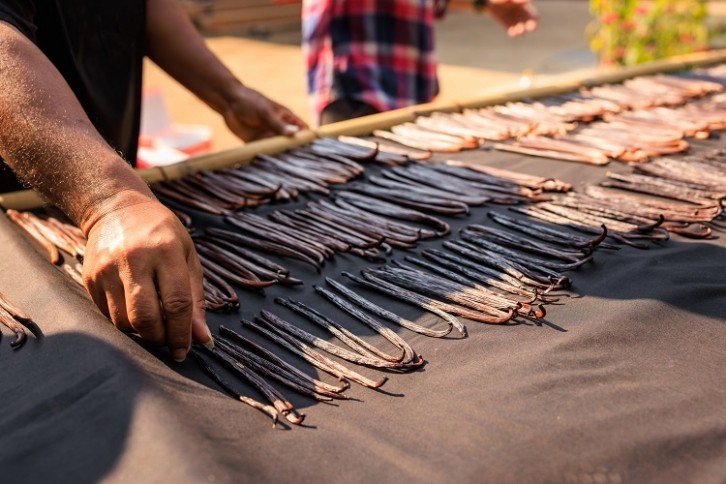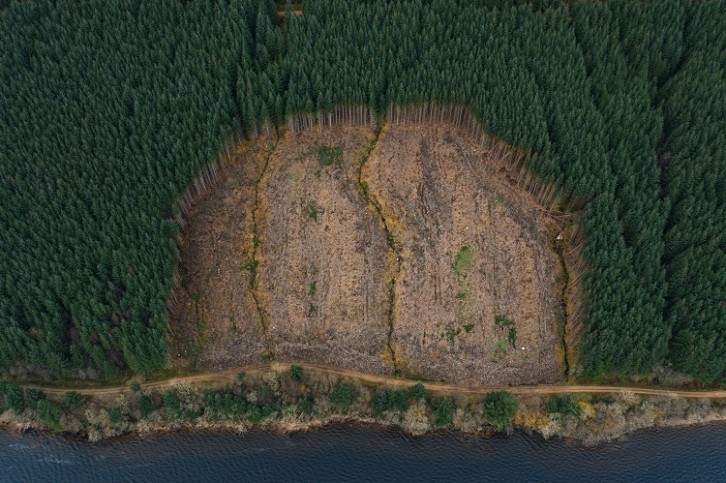Should vanilla production be stopped?

From ice creams and custards to cakes and confectionery, vanilla is a firm favourite in the world of flavours. But is our dependence upon this fragrant spice sustainable?
What is vanilla?
Vanilla is a spice derived from orchids of the genus Vanilla. It’s grown within 10-20 degrees of the equator and is a major crop of Madagascar, Mexico and Tahiti.
As with wine, chocolate and coffee, vanilla has its own distinctive flavour profile and characteristics, depending on the country it's grown in. This is a result of the different climates, soils, curing methods and vanilla species. For example, vanilla from Madagascar has a more creamy, sweet flavour, while Mexican vanilla is known for its hint of spice.
Environmental impact of vanilla
The growing of vanilla has attracted increasing criticism in recent years as it’s directly connected to the deforestation of the rainforests in the growing regions. The Sava region of Madagascar, in particular, has undergone intense deforestation in recent decades.
“The Sava region is really a hotspot of biodiversity,” said Mimie Ravaroson of flavours and fragrances supplier Symrise at London Flavour Day, hosted by the UK Flavour Association.
While some ingredients, such as cocoa and coffee, have come under close scrutiny for their connection to deforestation, vanilla has received less attention.
However, it's important to recognise that while vanilla production is linked to deforestation, it is not the primary driver behind deforestation in the Sava region of Madagascar.
"The deforestation that occurs in the Sava region is primarily driven by slash-and-burn to produce rice, which is the staple, subsistence crop for people across the region," Gaël Lescornec of the Sustainable Vanilla Initiative (SVI), told FoodNavigator.
Furthermore, the production of vanilla could in fact be helping to protect the forests of Madagascar as the livelihoods it provides to the vanilla farmers is more sustainable than the potential alternatives.
"Stopping vanilla production would be devastating to the lives and livelihoods of tens of thousands of vulnerable farming families as well as the economy of one of the poorest countries in the world," explains Lescornec. "The end of vanilla production in the region would also undermine existing public and private partnerships to protect the remaining forests and unique biodiversity of the Sava region. Rather than slowing deforestation, ending natural vanilla production in Sava would undoubtedly result in an increase in deforestation as families would lose their primary source of income and would be forced to look to forests to replace it – for example, by cutting down trees for charcoal etc."
"If consumer demand for natural vanilla decreases, thousands of smallholders will lose their livelihoods, often without viable alternatives," agrees Christiane Hornikel, lead of Herbs & Spices at the Rainforest Alliance. "Instead, consumers can support more sustainable vanilla production avoiding deforestation by looking for products that carry the Rainforest Alliance Certified seal.
"Independent, third-party auditors, critical to the integrity of any certification programme, evaluate farms against requirements before awarding or renewing certification. The audit primarily checks to see if the required systems, controls, and incentives are in place to help ensure that sustainability requirements are followed all year round.”

Fair trade concerns over vanilla
In addition to concerns relating to the environmental impact of vanilla production, there are also concerns relating to the treatment of the farmers growing the vanilla plants.
“For vanilla farmers and Madagascan people in general, vanilla is not a food, it is not a spice, it is for money, it is for life,” says Symrise’s Ravaroson.
Despite this reliance upon vanilla for financial stability, there is growing concern that farmers are not being fairly compensated for the work they do and the product they produce.
“The Fairtrade Foundation is concerned about the treatment and challenges vanilla farmers face,” Marta Sort Creus, senior programme manager on vanilla at The Fairtrade Foundation, told FoodNavigator. “Despite, vanilla traditionally being one of the world’s most expensive spices, this does not translate into a decent income for farmers putting many families at risk. While the number of farmers and workers that grow herbs and spices is vast and diverse, the number of companies that trade and market them is not.
“Many producers work in remote areas with poor transport and telecommunication links. This increases their production costs, hampers their market access, and makes them reliant on a limited number of traders.”
The farmers are also being impacted by the increase in extreme weather events resulting from climate change.
“Changing weather patterns, like the recent cyclone in Madagascar, can further fuel price fluctuations, making it even harder for smallholder farmers to earn a decent living from their crops,” added Sort Creus.
Though this is part of a negative cycle, with deforestation implemented to grow vanilla leading to the extreme weather events which impact vanilla growth, vanilla farmers need support to adopt more sustainable growing methods. They can’t do it alone. The Fairtrade Foundation is working to mitigate some of the power imbalances found in trade systems through fairer wages and the support of farmers. Like the Rainforest Alliance, the Fairtrade Foundation is also keen to highlight that no longer consuming vanilla is not the answer.
“Instead of no longer consuming vanilla, we need to ensure a secured living income for vanilla farmers in a more stable market that would enable long term growth of this iconic natural flavour, serving farmers as well as the environment,” explains a spokesperson for the Fairtrade Foundation. “Although vanilla farmers face various challenges, the cultivation of this crop also provides them with a source of income. Therefore, it is important to ensure that the farmers and workers are paid a fair income to support their families and communities.”
Innovation in vanilla production
As well as making vanilla production more sustainable in the existing growing regions, some companies are innovating to produce vanilla more sustainably elsewhere.
Founded in 2020, Israeli start-up, Vanilla Vida, is implementing smart farming techniques to overcome the “biggest pain point” for flavour houses in the natural vanilla market, an unstable supply chain. It's cultivating vanilla in climate-controlled greenhouses in Israel, mitigating the most common risks associated with vanilla growing, while also producing higher yields.
“You can do three seasons every two years, because your growing cycle is shorter,” co-founder and CEO, Oren Zilberman, told FoodNavigator.
Other organisations, such as the Sustainable Vanilla Initiative (SVI), are also working to improve the sustainability to naturally-grown vanilla by creating a,” long-term stable supply of high-quality, natural vanilla, that is produced in a socially, environmentally and economically sustainable way.”




